Old £1 coins: 122 million still not returned to Royal Mint
- Published
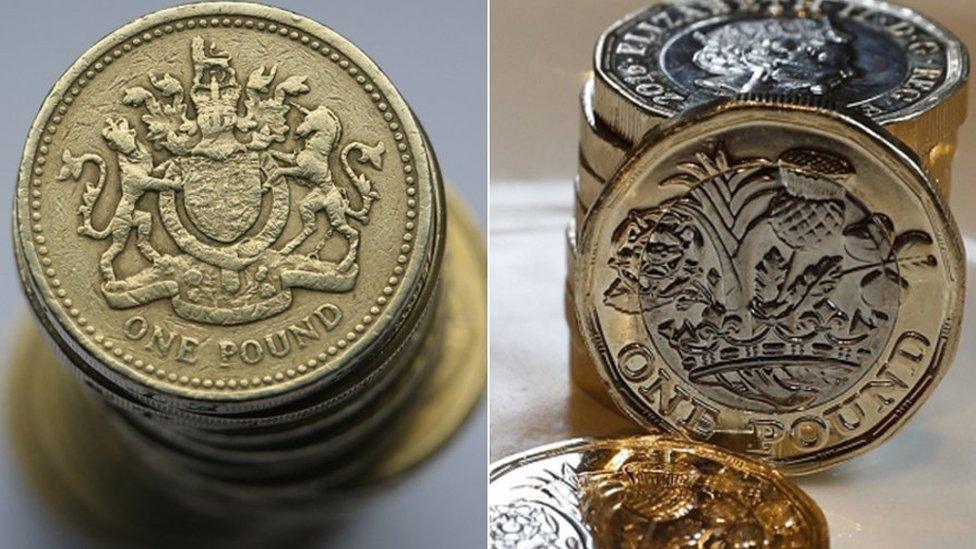
The round £1 coin was demonetised at midnight on 15 October 2017
About 122m round £1 coins have not been returned to the Royal Mint, nearly three years after they stopped being legal tender.
Approximately 1.58bn have been returned, not including at least 1.5m that were counterfeits.
But the Mint says fakes "could not be readily distinguished from the genuine coin, which is why a new coin was introduced".
The round £1 coin was replaced by the 12-sided version in October 2017.
A total of 23m old-style £1 coins have been returned to the Mint over the last year, according to the figures obtained by BBC Wales.
But that still leaves 122m outstanding - even though people have been unable to spend them in shops since October 2017.
The 12-sided £1 coin was introduced to help crack down on counterfeiting.
A Royal Mint official said their "internal records show since 2017 approximately 1.45m counterfeits have been returned, though this is a significant underestimate.
"They could not be readily distinguished from the genuine coin, which is why a new coin was introduced."
A brief history of decimal coins
There were about 1.7bn round £1 coins in circulation at the start of the six-month transition period in March 2017.
According to the Mint, external, a company wholly owned by the UK Treasury, the round £1 coin can still be deposited at most high-street banks.
About 138m round £1 coins have been melted down to help create some of the new ones at the Mint's base in Llantrisant near Cardiff.
The new £1 coin is described by the Mint as the most "secure in the world" and has a string of anti-counterfeiting details, including a hologram, and micro-sized lettering inside both rims.
It also has material inside which can be detected when electronically scanned by coin-counting or payment machines.
The Royal Mint expanded its offering last year by turning to jewellery making.
More than half of all payments were made by card last year - leaving the UK "inadvertently" prepared for the coronavirus lockdown, banks say.
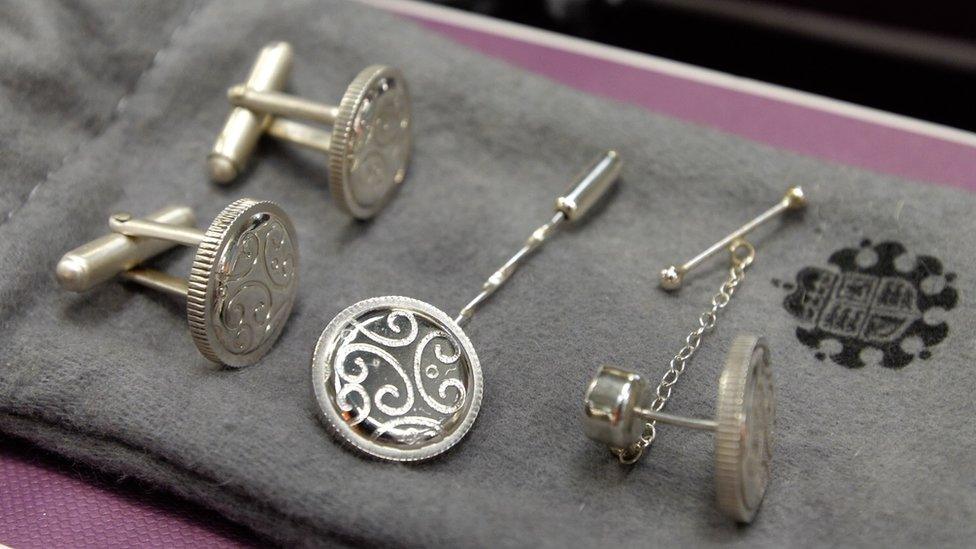
Cufflinks are part of the jewellery range introduced by the Royal Mint
- Published26 July 2020
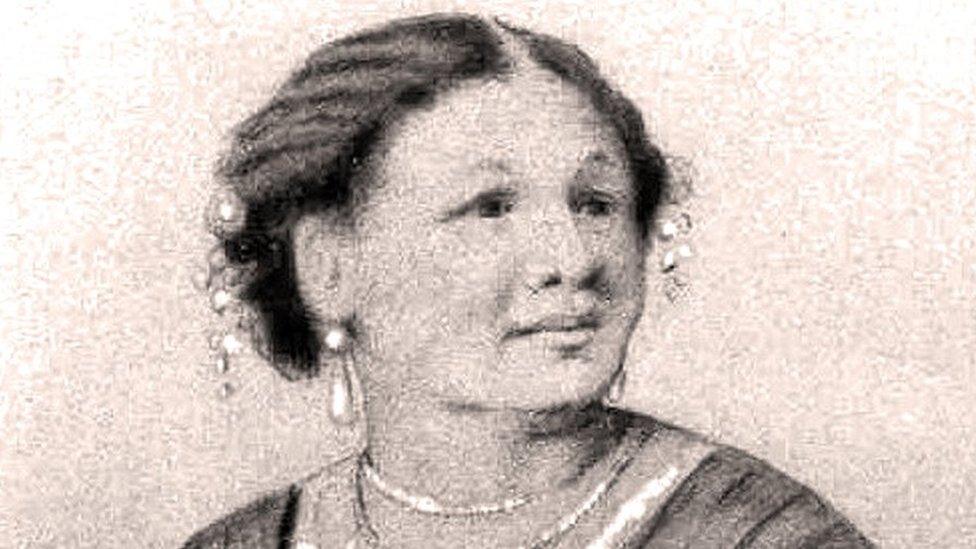
- Published3 June 2020

- Published29 April 2020

- Published16 September 2019

- Published28 July 2019
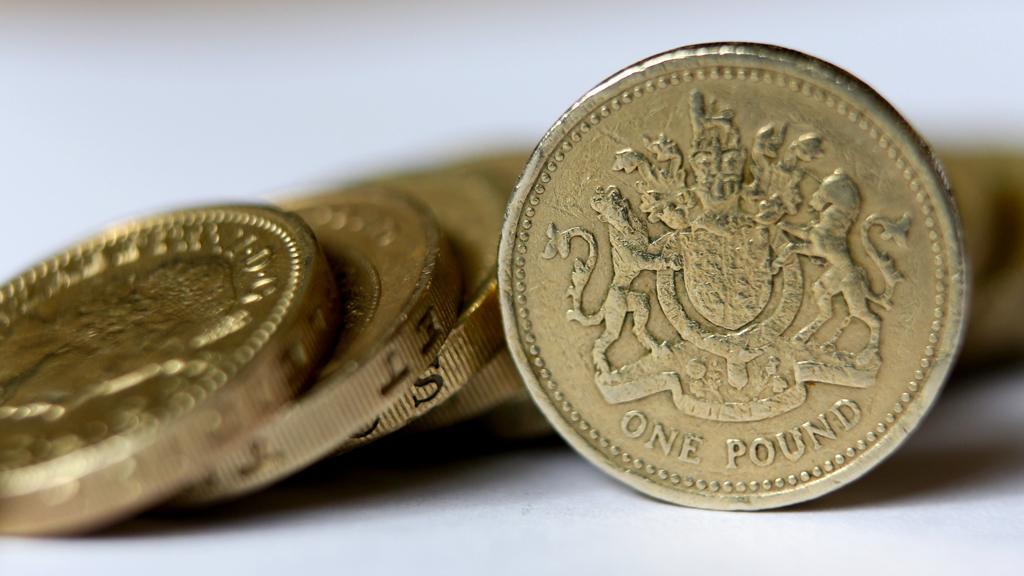
- Published6 January 2019
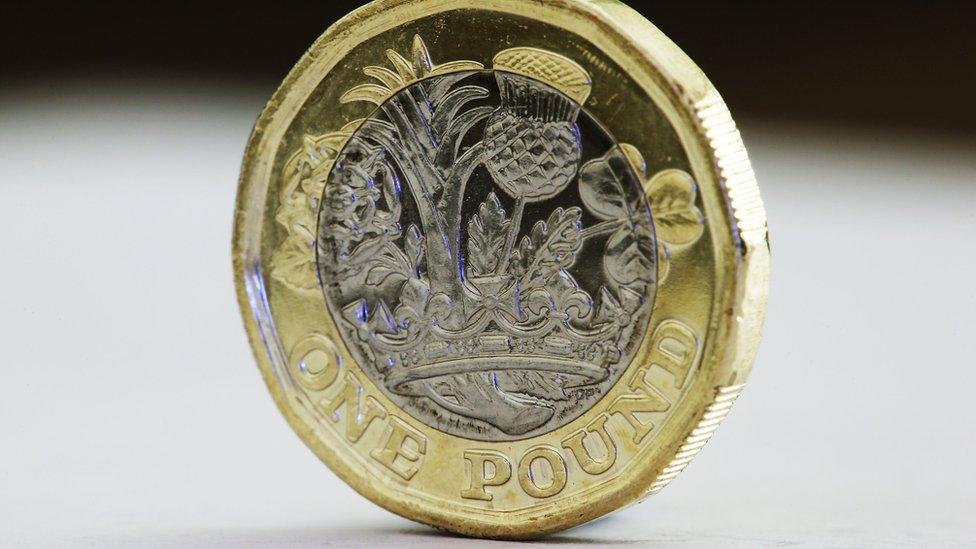
- Published8 August 2018
